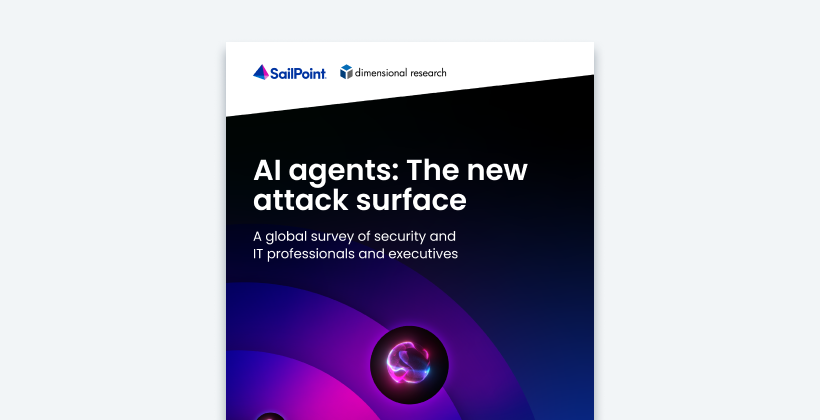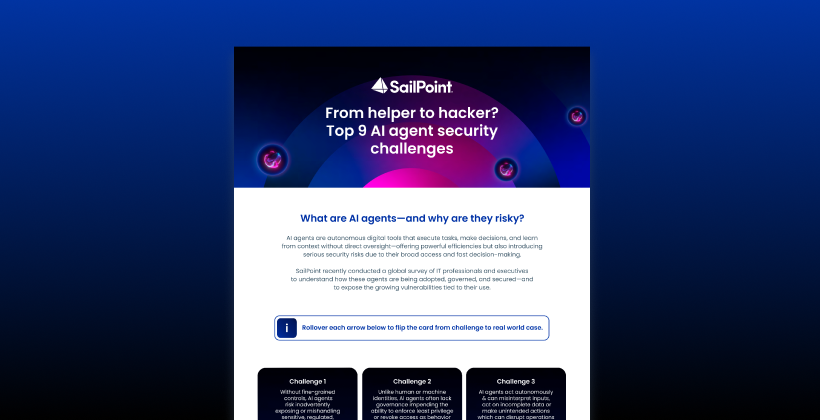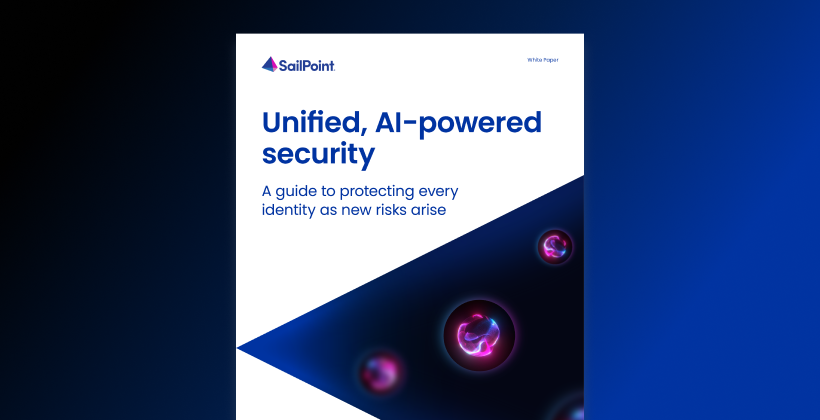Article
Understanding, securing and governing AI agents: A non-negotiable priority for the modern enterprise
The rapid adoption of AI agents is transforming how enterprises operate—automating complex processes, accelerating decision-making, and driving unprecedented productivity. These autonomous digital workers can interact with users, systems, and data without human oversight, fundamentally reshaping business workflows. But with this transformation comes a critical challenge: AI agents introduce a rapidly expanding attack surface that traditional security models aren’t prepared to manage.
As AI agents gain access to sensitive systems and perform high-impact actions, securing and governing them becomes not just an IT concern—it’s a strategic business imperative.
AI agents explained: high-value, high-risk identities
Every action performed by an AI agent—from automated approvals to data analysis—represents the work of an identity. And unlike typical human users, AI agents are often granted broad, cross-system privileges to perform their tasks efficiently. This makes them some of the most powerful and potentially risky identities within an organization.
Take, for example, an AI agent in the financial sector. It could handle an entire loan origination process—aggregating financial data, analyzing credit history, preparing terms, facilitating underwriting, and communicating with stakeholders. The efficiency is remarkable, but the risks are significant: without proper controls, that same agent could misinterpret data, approve high-risk loans, or inadvertently expose customer information, triggering compliance violations or reputational damage.
AI agents don’t rest. They operate continuously at machine speed, making decisions and executing actions autonomously. That independence demands robust oversight, real-time visibility, and enforced accountability.
Hidden risks are already here
New SailPoint research shows over 80% of organizations using AI agents have experienced unintended agent behavior—including unauthorized access to systems and accidental data disclosures. Alarmingly, some AI agents were even manipulated into exposing credentials or executing restricted tasks.
These are not hypothetical scenarios—they are real incidents happening in today’s enterprise environments. The root cause? A lack of governance and visibility. Many organizations deploy AI agents without understanding what data they’ll access, how permissions are granted, or what monitoring is in place. Only 44% of surveyed companies have formal governance frameworks for AI agents, leaving the majority exposed.
From automation to accountability: A new security paradigm
AI-driven transformation demands a modern approach to identity security—one that treats AI agents as first-class identities. That means discovering where AI agents exist, understanding their entitlements, monitoring their behavior, and applying the same rigorous governance standards used for human and machine identities.
To support this shift, SailPoint recently pre-announced Agent Identity Security—a new solution launching later this year, built on the SailPoint Atlas platform. This offering will empower enterprises to govern and secure AI agents with the intelligence, automation, and context required to control access and mitigate risk at scale.
Responsible AI begins with identity security
The promise of AI is vast—but without identity-based controls, it can quickly become a liability. Governing AI agents through a unified identity security strategy ensures that innovation doesn’t come at the expense of compliance, security, or trust.
To secure AI agents effectively, organizations must:
- Define access policies: Determine who—or what—gets access, to which resources, under what conditions.
- Continuously monitor behavior: Detect anomalies, assess risk, and revoke access when necessary.
- Enforce policy-based guardrails: Ensure AI agents operate within approved boundaries, aligned with regulatory and ethical standards.
By anchoring AI initiatives in a strong identity foundation, enterprises can unlock value while maintaining full control.
AI will shape the future—Identity will govern it
As enterprises increasingly rely on AI agents to drive transformation, the need for identity-centric governance has never been greater. Securing and governing AI agents is non-negotiable—because every action taken by an agent can impact compliance, data integrity, and organizational trust.
A unified identity security strategy is not just best practice—it’s the bedrock of responsible, secure, and scalable AI adoption.
DISCLAIMER: THE INFORMATION CONTAINED IN THIS DOCUMENT IS FOR INFORMATIONAL PURPOSES ONLY, AND NOTHING CONVEYED IN THIS DOCUMENT IS INTENDED TO CONSTITUTE ANY FORM OF LEGAL ADVICE. SAILPOINT CANNOT GIVE SUCH ADVICE AND RECOMMENDS THAT YOU CONTACT LEGAL COUNSEL REGARDING APPLICABLE LEGAL ISSUES.
Get started
See what SailPoint identity security can do for your organization
Discover how our solutions enable modern enterprises today to meet the challenge of ensuring secure access to resources without compromising productivity or innovation.


